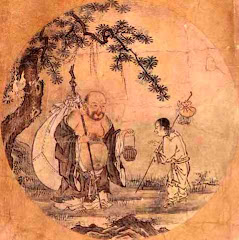
The world never accepts anybody as he is. That is something very fundamental about the world and the way it treats individuals. The individual is small; the individual is born helpless, a child. The world is always big; it has all the power to create or to destroy.
The child has no idea who he is -- and certainly he needs an identity. The world gives him an identity. The world starts making him, manufacturing him according to its own needs.
The world does not exist for the individual. The whole effort is to make the individual exist for the world.
The whole education system, the priest, the politician, the leader, the so-called wise people -- they are all conspiring against the individual. Their conspiracy is to kill his individuality, his freedom, his intelligence -- any possibility of revolt. There should not be left in the individual any seed of saying no. He should be programmed in such a way that he becomes an obedient servant.
Hence, obedience is so much praised: parents like the obedient child, teachers like the obedient student, the society likes the obedient citizen. Those who are not obedient are thought to be misfits, they are condemned. Nobody wants to be condemned, and when the whole world is on one side, a single individual feels so tiny -- a dewdrop against the whole ocean -- that he cannot think himself to be right; the ocean must be right.
Obedience has a certain dumbness about it, disobedience a sharp intelligence about it. But obedience is respected because obedience gives less inconvenience. Of course that's right -- disobedience creates inconvenience. You would like a dead child because he will not create any inconvenience. You would not like an alive child -- the more alive, the more danger there is.
Parents, societies, schools, they all force obedience, they dull you; and then they respect those people. That's why in life you never see people who stand first in schools, universities; in life they are simply lost. You never find them in life, where they go... they prove themselves very talented in school, but somehow in life they are lost. It seems that the ways of school are different from the ways of life. Somehow life loves lively people -- the more lively, the more rebellious: people with their own consciousness, being, and personality; people who have their own ways to fulfill; people who are not dead. Schools prefer just the opposite. The whole society helps you to become dumb, deaf, blind, dead.
The disobedient child is continuously condemned. The obedient child is, on the other hand, continuously praised. But have you heard of any obedient child having become world-famous in any dimension of creativity? Have you heard of any obedient child who has attained the Nobel prize for anything -- literature, peace, science? The obedient child becomes just the common crowd. All that is added to existence is added by the disobedient.
Why have very few people become enlightened in the world? The reason is very simple: they did not dare to remain misfits, condemned, dishonored, rejected their whole life. That's why very few people have been individuals, and very few people have reached to the ultimate explosion of their being. There are people who start, but sooner or later they compromise, seeing the dangers of being just yourself.
.









